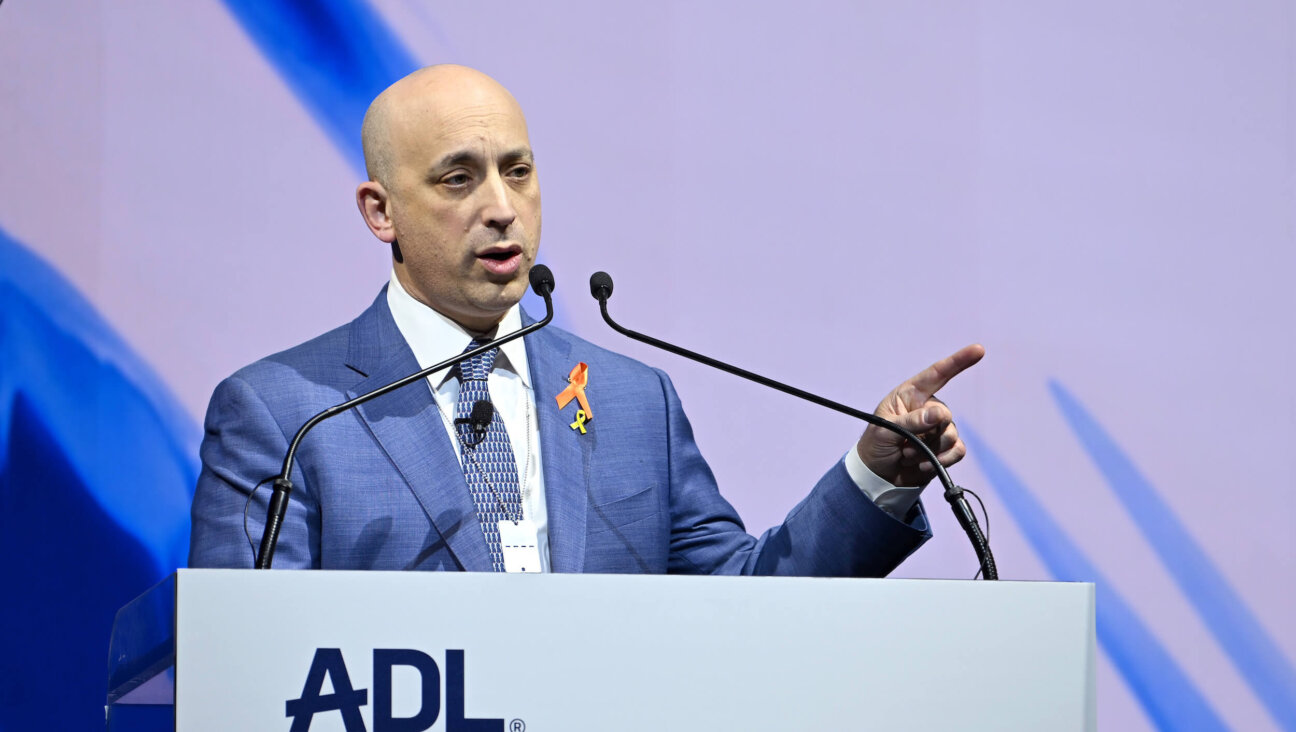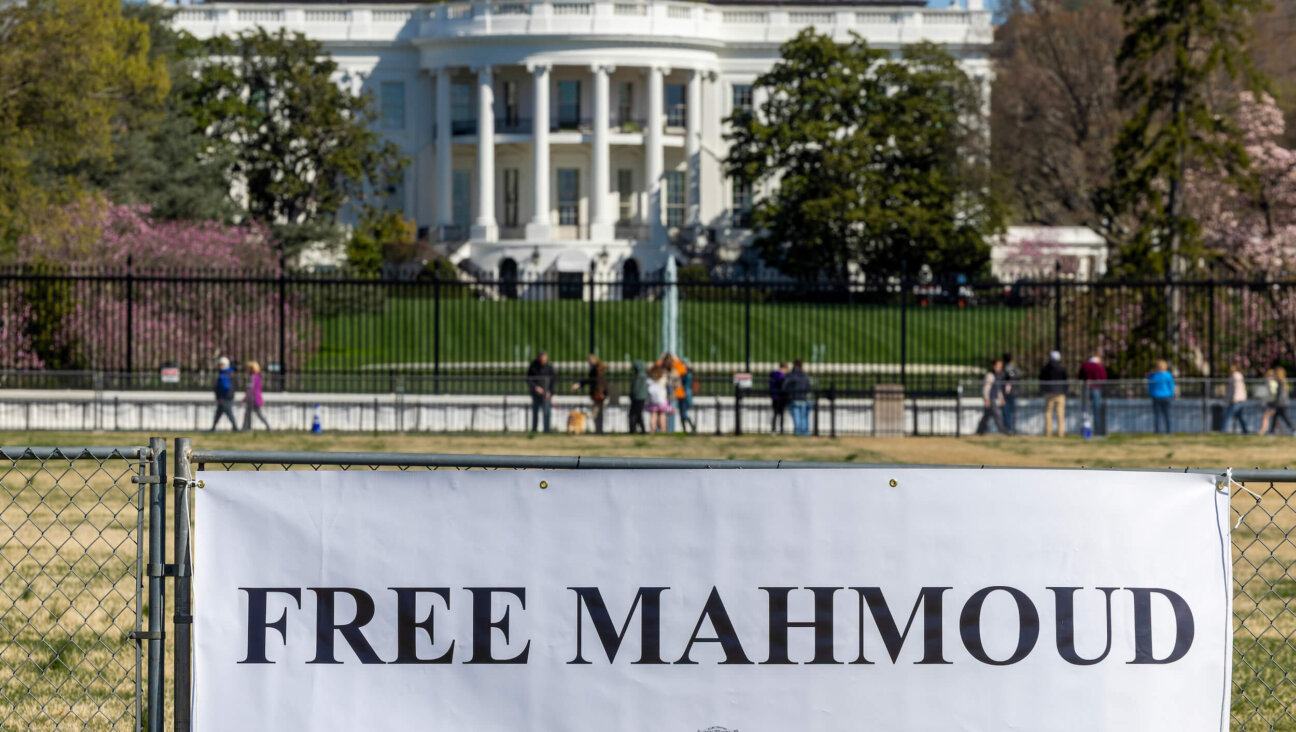Israeli women were raped and widowed by Hamas. Now the world ignores and mocks their suffering
In the aftermath of Oct. 7, Israeli women have been considered both ‘unrapeable’ and sexually depraved

Protestors gather at the offices of the United Nations Women on November 27, 2023 in New York City. The group Bring Them Home Now held a protest to observe International Day for the Elimination of Violence against Women to bring attention to the Israeli women who were allegedly raped during the terror attack by the militant group Hamas on October 7th. Photo by Michael M. Santiago/Getty Images
On Oct. 8, 2023 — a day after Israel experienced the most brutal massacre in its history — one of the first accounts of the sexual violence that Hamas waged against many of its victims surfaced. “Women have been raped at the area of the rave next to their friends bodies, dead bodies,” one survivor who’d attended the Tribe of Nova music festival told Tablet editor-at-large Liel Leibovitz. “Several of these rape victims appear to have been later executed,” Leibovitz added later in the piece.
Normally, one would expect a disclosure like this — not just of rape, but of rape followed by murder; rape in the midst of a violent massacre — to earn the victims and survivors sympathy and support. Yet what I saw from many people online was not empathy, but doubt and disbelief.
Over the past month and a half, as the Hamas attack gave way to a brutal military assault on Gaza, battle lines have been drawn in the public discourse. Commentators have been urged to “pick a side,” demonstrating their loyalty to one country’s wounded by ignoring or even outright mocking another people’s suffering. In the midst of this, Israeli women in particular have been hard hit, with their pain at best ignored and at worst turned into fodder for cruel memes.
When it came to Tablet’s reports of rape, an initial assumption of credibility quickly gave way to skepticism. If there were actually rapes amidst Hamas’ assault on Israel, one misinformation expert asked, then why wasn’t it all over major media outlets’ headlines? All of the knowledge about sexual assault that our society recently had refreshed during the #MeToo movement — that it is commonplace during war and especially during militant actions, that it is difficult for survivors to discuss and is often left out of media coverage either out of a discomfort with the topic or a desire to protect the victims — seemed to have been instantly forgotten.
Over a month and a half later, the amnesia has yet to lift. In its Oct. 20 report on the conflict in Gaza, UN Women neglected to make any mention of the sexual violence experienced by Israeli women on Oct. 7. Even as more reports have come out about the sexual assaults that were waged on that day, with survivors sharing their accounts with the Israeli police and the press, the wave of denial has not lifted — not online, and not among global feminist groups, who’ve remained curiously silent about the abuse of Israeli women at the hands of Hamas.
It is against this backdrop that another disturbing trend has unfolded online. In early November, the official X account for Israel shared the story of a woman who attempted to use posthumous semen retrieval — a medical procedure invented in 1980 that enables the collection of semen from a corpse — after her husband had been killed by Hamas, only to learn that her attempts had come too late.
Although PSR is controversial, it remains within the bounds of ethical medicine, particularly when employed at the request of the partner of the deceased. In Israel, where young men are more likely to die unexpectedly due to compulsory military service, it is a relatively accepted, if not incredibly common, practice.
Yet all of that nuance was lost online, partly due to the obscure phrasing that Israel’s social media managers used when discussing the procedure online. “Shaylee Atary’s husband Yahav was murdered by Hamas terrorists. She did everything in her power to retrieve his sperm,” the post read, leading readers unfamiliar with PSR to envision all manner of horrific scenarios that might entail.
Seemingly overnight, the post became fodder for a range of cruel and dehumanizing jokes. “Babe would you jack me off after i died,” read one reply that garnered 7,500 likes, while posts about an IDF semen retrieval unit rapidly became an X meme. Any empathy for a woman who simply wanted a chance to have another child with her beloved husband after he was brutally murdered in a terrorist attack was utterly absent. When I personally attempted to highlight the grotesqueness of turning this widow into the subject of a particularly callous joke, it led only to others targeting me with vile comments about my own “love” of necrophilia and fascism.
Though these two phenomena — the erasure of Israeli women’s victimhood and the mockery of Israeli women’s suffering — might seem utterly unrelated, I cannot help but connect them in my mind.
In one corner, we have Israeli women rendered unrapeable, their accounts of sexual violence written off as little more than hysterical attempts to defame Palestinian men. In another, we have Israeli women transformed into a horrific caricature of sexual depravity, creatures willing, even eager, to violate the corpses of their loved ones in order to achieve their own selfish ends. It is a textbook strategy for the dehumanization of an enemy: Deny their ability to feel pain while mocking their cultural norms around sex and death.
Refusing to see the ways that Israeli women have been hurt, while insisting that the way that they process their grief is a depraved desecration of the people that they loved and lost, is a continued violation of their dignity.
Israeli women are all too human, just like Palestinian women and women around the globe. Recognizing that Israeli women were brutally raped on Oct. 7, or accepting their choice to employ PSR in the wake of an unfathomable loss, does not automatically provide justification for the Palestinian occupation, Israeli apartheid policies or any of the violence that has been waged against Palestinians in the wake of the Oct. 7 massacre. But it does require us to understand that everyone in this conflict is a human being. There is unimaginable suffering in Israel and Palestine and no one is exempt from it.
For some people, that revelation is apparently too much to bear. As a result, Israeli women are continuing to be retraumatized as their pain goes without recognition.
To contact the author, email [email protected].
The Forward is free to read, but it isn’t free to produce

I hope you appreciated this article. Before you go, I’d like to ask you to please support the Forward.
At a time when other newsrooms are closing or cutting back, the Forward has removed its paywall and invested additional resources to report on the ground from Israel and around the U.S. on the impact of the war, rising antisemitism and polarized discourse.
Readers like you make it all possible. We’ve started our Passover Fundraising Drive, and we need 1,800 readers like you to step up to support the Forward by April 21. Members of the Forward board are even matching the first 1,000 gifts, up to $70,000.
This is a great time to support independent Jewish journalism, because every dollar goes twice as far.
— Rachel Fishman Feddersen, Publisher and CEO
2X match on all Passover gifts!
Most Popular
- 1

News A Jewish Republican and Muslim Democrat are suddenly in a tight race for a special seat in Congress
- 2

Fast Forward The NCAA men’s Final Four has 3 Jewish coaches
- 3

Fast Forward Cory Booker proclaims, ‘Hineni’ — I am here — 19 hours into anti-Trump Senate speech
- 4

Film & TV What Gal Gadot has said about the Israeli-Palestinian conflict
In Case You Missed It
-

Opinion The ADL reversed its support for Trump’s student deportations. You should too
-

Fast Forward Senate rejects Bernie Sanders’ proposal to block some weapons sales to Israel
-

Fast Forward Sotheby’s to auction earliest known kiddush cup
-

Opinion Trump’s new tariffs on Israel are a BDS dream come true
-
Shop the Forward Store
100% of profits support our journalism
Republish This Story
Please read before republishing
We’re happy to make this story available to republish for free, unless it originated with JTA, Haaretz or another publication (as indicated on the article) and as long as you follow our guidelines.
You must comply with the following:
- Credit the Forward
- Retain our pixel
- Preserve our canonical link in Google search
- Add a noindex tag in Google search
See our full guidelines for more information, and this guide for detail about canonical URLs.
To republish, copy the HTML by clicking on the yellow button to the right; it includes our tracking pixel, all paragraph styles and hyperlinks, the author byline and credit to the Forward. It does not include images; to avoid copyright violations, you must add them manually, following our guidelines. Please email us at [email protected], subject line “republish,” with any questions or to let us know what stories you’re picking up.













